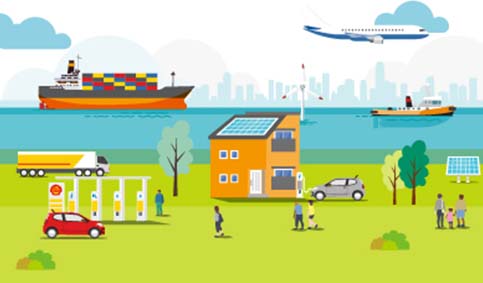Introduction from the Chief Financial Officer

Chief Financial Officer
In 2022, we achieved strong results as we continued to provide the energy our customers need. In a volatile geopolitical environment and against a backdrop of high energy prices, we reported a profit before tax of $64.8 billion and paid $13.1 billion in corporate income tax. By paying taxes, we help provide governments with revenues to invest in essential public services, such as health care and education, for the benefit of their economies and people.
In this, our fifth annual Tax Contribution Report, we provide details of the corporate income tax we pay in 97 countries and locations, and disclose our total tax contribution for 48 of these. We also give details of the tax incentives we benefit from in India, Malaysia, the Netherlands, the Philippines and Turkey. Tax incentives encourage investment, employment and economic development, and are a key element of fiscal policy.
In this report, we set out how we believe governments should shape their policies to advance the energy transition by, for instance, encouraging investment in low-carbon energy, while meeting the economic and social needs of their countries and communities.
Some governments imposed windfall taxes on energy companies in light of higher revenues in 2022 after Russia’s invasion of Ukraine. Shell expects to pay windfall taxes on profits made in 2022 of more than $1 billion, some of which we have paid in 2022 and 2023. The rest is due in coming years. In this report, we give details of the windfall taxes in Belgium, Germany, Italy, the Netherlands and the UK, and how they affect Shell.
Our annual review of our presence in low-tax jurisdictions continues to help us identify opportunities for restructuring and liquidation. In line with our Responsible Tax Principles, we aim to be in low-tax jurisdictions only when there is a commercial reason for being there. As of October 2023, we have liquidated 24 legal entities in low-tax jurisdictions since 2019, and we are in the process of liquidating 11 others.
Shell strongly supports a transparent and co-ordinated approach to improving the global tax system rather than unilateral, unco-ordinated legislative actions. That is why we welcome the OECD’s framework for the global taxation of multinational enterprises. We give our views through public consultations to address, among other things, the risk of double taxation, and we support rules to resolve cross-border tax disputes.
Part of this framework would require large multinationals like Shell to pay at least 15% tax on the profits they make in each jurisdiction where they operate. This may result in us paying additional taxes each year on our activities in low-tax jurisdictions.
Fair taxation enables economies to grow. This report demonstrates how, by paying taxes, Shell works to support the many countries in which we operate.










